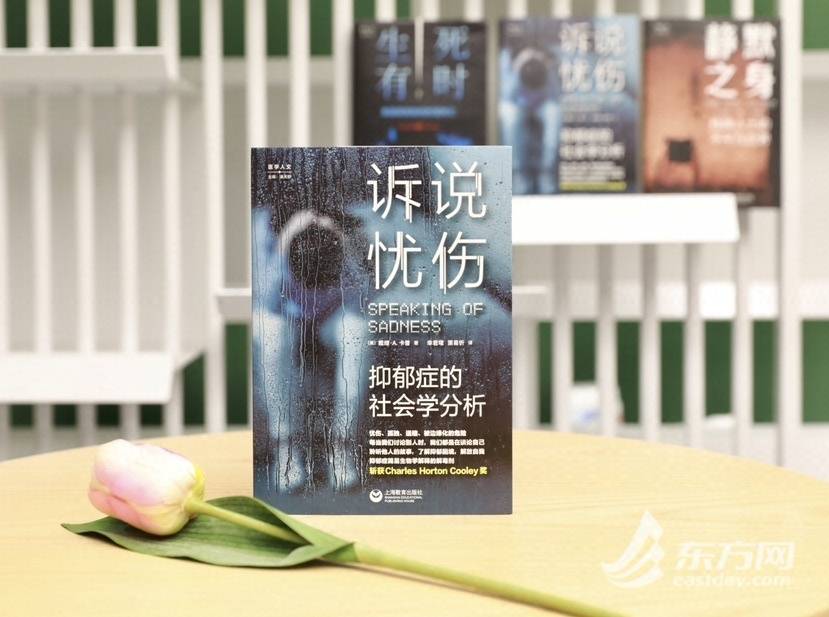What are the real feelings of depression?
Aside from the need for medication, is there anyone concerned about the experiences of those affected by depression, their needs during depression, their feelings upon coming out of the worst stages, and the complex and unpredictable impact of depression on their lives?
“Depression steals your past identity, hinders you from envisioning your future self, and replaces your life with a black hole. You are like a sweater eaten by moths, leaving nothing of the original, just fragments hinting that your past abilities, capabilities, and potentials no longer exist. Everything humans cherish becomes insignificant—music, laughter, love, sex, children, baking biscuits, and the New York Times Sunday edition—because no one or nothing can touch the person trapped in a vacuum. You don’t know what’s coming next, when it will end, or even where you are now. Suicide may sound great, but planning and executing it is too difficult.”
Image caption: “Telling Sad Stories” published by Shanghai Education Press, translated by Xing Junjun and Xiao Yixin. Source: Publisher
This vivid description is from the book “Telling Sad Stories: A Sociological Analysis of Depression” by David A. Karp, a sociologist at Boston College, who, drawing from his own experience with depression and sociological imagination, combines both subjective and objective perspectives and methods through interviews with 50 individuals with depression, to showcase their experiences, thoughts, and feelings about depression, providing a unique sociological perspective on the intricate social processes of depression.
The book focuses on how individuals with depression understand this inherently ambiguous life situation, how their depression consciousness evolves over time, how they perceive psychiatry and medication, and how they interact with family and friends.
Depression is a recurring topic. The “2022 National Depression Blue Book” shows that there are currently 95 million depression patients in China, with one in every 15 people around us being a depression patient, indicating that depression or depressive emotions have gradually become a fundamental survival experience for modern individuals.
Currently, the diagnosis and treatment of depression are primarily led by modern medicine. Biological researchers are dedicated to identifying the biological basis of depression, actively utilizing medication to treat depression; sociological researchers collect statistical data from a large number of individual samples to establish fundamental causal relationships between variables.
Image caption: Table of contents for “Telling Sad Stories”. Reporter: Chen Lina
However, according to Karp, in the research on various aspects of social life, there is a clear tendency to neglect individual narratives, which is particularly inappropriate in the study of mental illness experiences. He firmly believes that since 1980, the pursuit of scientific rationality in psychiatry has silenced the voices of patients telling their stories, showing relatively little empathy for the social context of patients’ struggles with illness, which actually undermines patients’ trust in their caregivers. What is more troublesome is that not respecting patients, not considering from the patients’ perspective may lead to more medication treatment, which many consider ultimately more harmful than beneficial.
The starting point of “Telling Sad Stories” is to fulfill one of the enduring missions of sociology—to allow those whose narratives are often marginalized, left in a corner, or completely ignored to speak out about their experiences.
The real experiences of these recovering individuals cannot be obtained from psychologists, psychiatrists, drugs, or hospitals, but their stories can contribute to objective judgment, dilute the loud promotion of drugs and “cure,” provide relevant information and context to help other individuals with depression understand their own experiences, and prove that you are not alone in facing this monster called depression. Their stories can bring hope. (Oriental News·Zongxiang News, Chen Lina)


